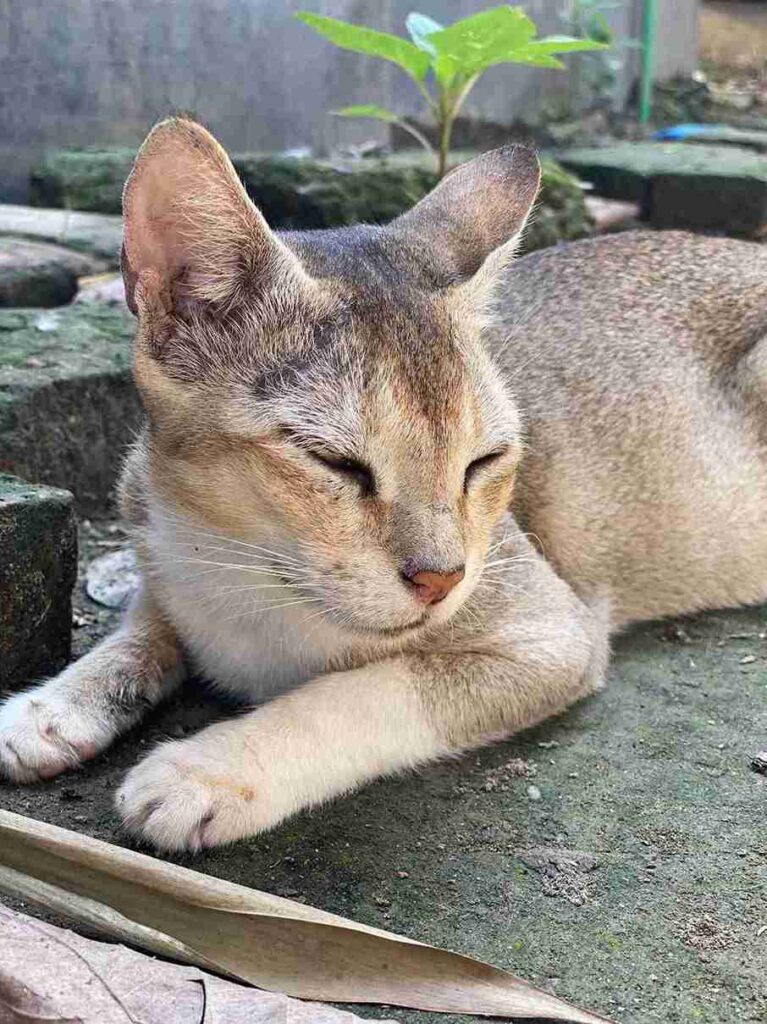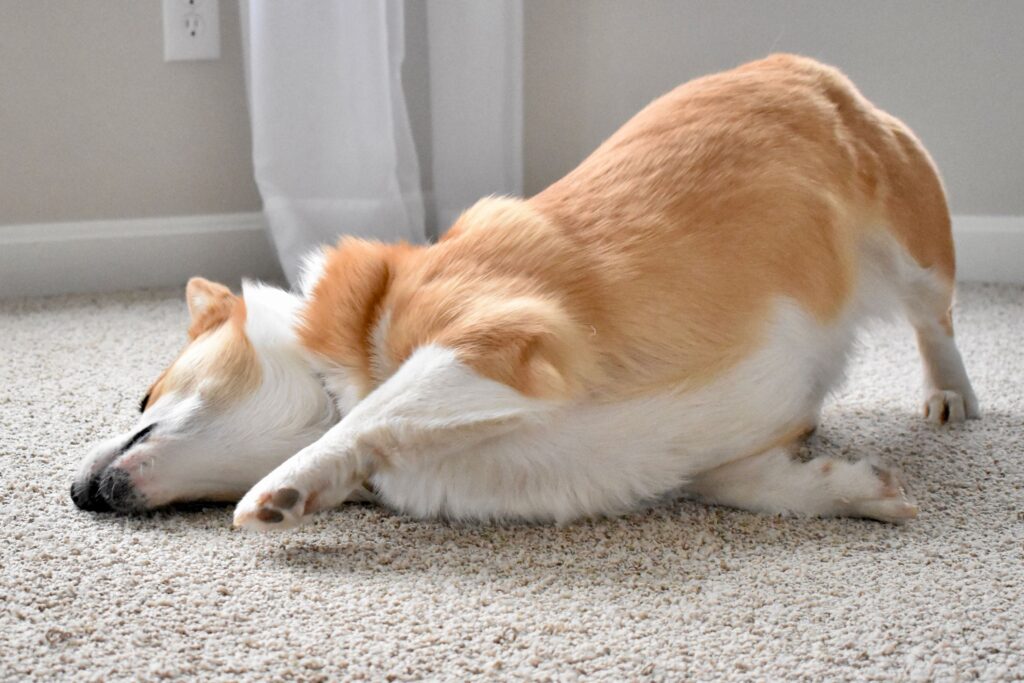Cats pee on plastic bags due to their smooth texture, resembling certain types of litter. Cats have a strange yet common habit of urinating on plastic bags.
The smooth texture of plastic bags can resemble certain types of litter and therefore, cats might mistake these bags for their designated peeing areas. This behavior can also be triggered by territorial marking, stress, or even health issues. While it may seem perplexing, understanding the reasons behind this habit can help pet owners address the issue effectively.
We will explore the possible reasons why cats pee on plastic bags and provide some tips on how to prevent or manage this behavior. By gaining insights into this peculiar feline habit, cat lovers can create a cleaner and more comfortable environment for their beloved pets.
Contents
The Appeal Of Plastic Bags For Cats
The strange yet common habit of cats peeing on plastic bags can be attributed to a combination of factors, including texture, sensation, and scent. Cats are naturally attracted to the unique feel of plastic. The crinkly sound and smooth surface provide a sensory experience that is different from other surfaces in their environment.
Moreover, the texture of plastic bags has a similar feel to certain types of substrates found in the wild, triggering the instinctual behavior of marking territory. These bags can also provide an accessible and convenient litter box alternative for cats, especially when their regular litter box may be occupied or hard to access.
Another factor that contributes to this behavior is scent. Plastic bags have the ability to retain odors, and the smell of cat urine may be appealing to a cat, as it reinforces their territory or acts as a way to communicate with other cats nearby.
It is important for cat owners to address this behavior and provide appropriate alternatives such as providing a variety of toys, scratching posts, and designated areas for toileting. Additionally, keeping plastic bags out of a cat’s reach and providing a spacious, clean litter box can help deter this unusual habit.
Understanding Cat Behavior
Cats peeing on plastic bags is a strange yet common habit that can be attributed to various factors, most notably marking territory and stress and anxiety. Territorial marking is a natural feline behavior, as cats have scent glands in their paws that they use to leave their scent on objects. Plastic bags, with their unique texture and crinkling sounds, may attract cats to mark their territory. It is their way of claiming ownership over the bags.
Stress and anxiety are also major contributors to this behavior. Cats are sensitive creatures and may resort to unusual behaviors when they feel stressed or anxious. Plastic bags, often associated with unfamiliar scents or loud noises, can trigger these feelings in cats and lead to urinating on them as a coping mechanism.
It is crucial to address the underlying causes of this behavior. Providing a safe and stress-free environment for your cat, with plenty of enrichment and hiding spots, can alleviate their anxiety. Regular litter box maintenance, ensuring it is clean and accessible, can also help redirect their peeing habits to appropriate locations.
Possible Explanations For The Strange Habit
Cats have a strange yet common habit of peeing on plastic bags. There could be several possible explanations for this behavior.
Association with litter box: One reason might be that cats associate the crinkling sound of plastic bags with their litter box. Since litter boxes are typically made of plastic, the noise generated by a plastic bag might instinctively trigger the need to pee.
Attraction to the crinkling sound: Another possible explanation is that cats are attracted to the crinkling sound of plastic bags. Cats are naturally curious and love exploring new objects, and the noise made by a plastic bag may pique their interest.
Substituting for outdoor soil: Cats have an instinctual tendency to relieve themselves on soft and absorbent surfaces, similar to outdoor soil. While plastic bags may not necessarily provide the same feel as soil, they could be seen as a suitable alternative in the absence of outdoor options.
Understanding why cats pee on plastic bags can help pet owners address and manage this behavior effectively. By providing appropriate alternatives and creating a comfortable litter box environment, pet owners can discourage this strange habit and ensure their cats’ well-being.
Tips To Prevent And Manage The Habit
It is common for cats to exhibit the strange habit of peeing on plastic bags. This behavior can be puzzling for cat owners but is often rooted in their natural instincts. To prevent and manage this habit, there are a few tips that can be helpful.
Providing alternative litter box options: Cats may pee on plastic bags if they are not satisfied with their litter box. Offering different types of litter, such as clumping or natural options, can entice them to use the litter box instead of plastic bags.
Eliminating stress triggers: Stress can contribute to this behavior. Creating a calm environment with designated hiding spots, vertical spaces, and regular playtime can help reduce stress and prevent cats from seeking out plastic bags.
Properly disposing of plastic bags: It is crucial to ensure that all plastic bags are securely stored and disposed of properly. Cats may be attracted to the texture and scent of plastic, so eliminating their access to these materials will discourage them from peeing on them.
Seeking Veterinary Advice
Strange yet common, the habit of cats peeing on plastic bags is a perplexing behavior. If you find your feline companion indulging in this peculiar act, seeking veterinary advice is crucial. Discussing the behavior with a veterinarian can provide valuable insights and help determine the underlying cause. Assessing potential health issues is of utmost importance since cats may exhibit this behavior due to various medical conditions. Conditions such as urinary tract infections, bladder stones, kidney disease, or even stress and anxiety can contribute to this habit. Regular visits to the veterinarian can aid in identifying and treating any underlying health problems, ensuring your cat’s well-being. By addressing these issues, we can better understand and prevent this unusual behavior in our feline friends.

Credit: www.nytimes.com
Frequently Asked Questions On Why Do Cats Pee On Plastic Bags: Strange Yet Common Habit
Why Would My Cat Pee On My Bag?
Cats may pee on bags due to territory marking, stress, or medical issues. Provide a clean litter box and ensure your cat feels secure. If the behavior continues, consult a veterinarian to rule out any underlying health problems.
How Do You Stop A Cat From Peeing On Plastic Bags?
To stop a cat from peeing on plastic bags, try storing them out of reach, using deterrent sprays, providing a litter box with a lid, or addressing any underlying medical or behavioral issues. Ensure your cat has access to clean litter and offer positive reinforcement when using the litter box.
Why Is My Cat Obsessed With Plastic Bags?
Cats can be obsessed with plastic bags due to their crinkly sound and texture, which triggers their natural hunting instincts. It’s important to keep plastic bags out of their reach to prevent them from potentially ingesting or getting tangled in them.
Why Did My Cat Pee On My Duffle Bag?
Cats pee on duffle bags due to territorial marking behavior or stress.
Conclusion
To wrap it up, cats’ peculiar choice of peeing on plastic bags may seem strange, but it is a surprisingly common behavior. Understanding the reasons behind this habit, such as the bag’s texture, scent, or even emotional stress, can help cat owners address the issue effectively.
By providing alternatives like litter box accessibility, engaging toys, and a stress-free environment, we can encourage our feline friends to refrain from using plastic bags as their makeshift litter boxes. This way, we can maintain a harmonious living space while keeping our curious cats happy and healthy.
Katie Lindsey is a passionate cat lover and founder of Cats Solution, a comprehensive resource for all things feline. With a lifelong love for cats and extensive knowledge in their care and behavior, she provides expert advice and solutions to cat owners. Through her website, Katie fosters a supportive community where cat enthusiasts can find guidance and heartwarming stories. A dedicated advocate for animal welfare, Katie also promotes responsible pet ownership and adoption. Join her on this purr-fect journey celebrating the joy of feline companionship.



